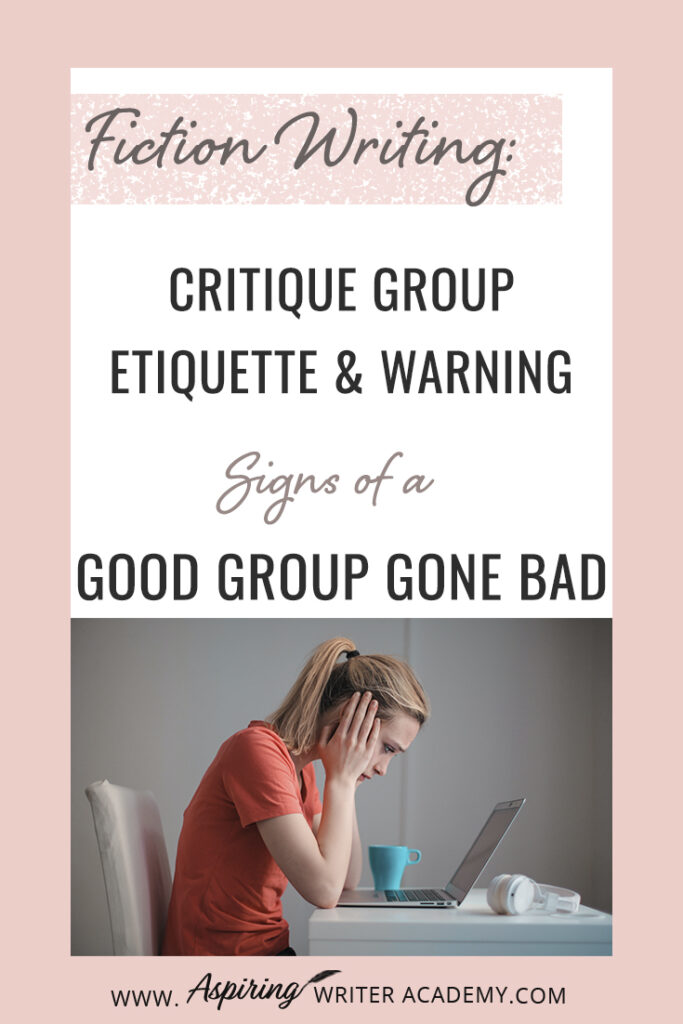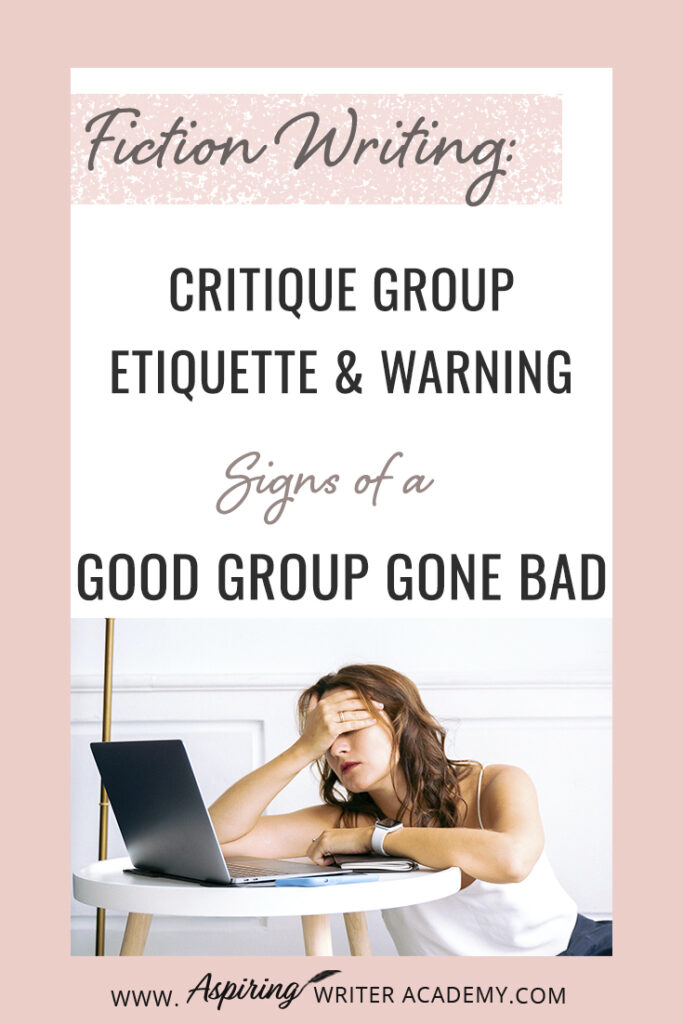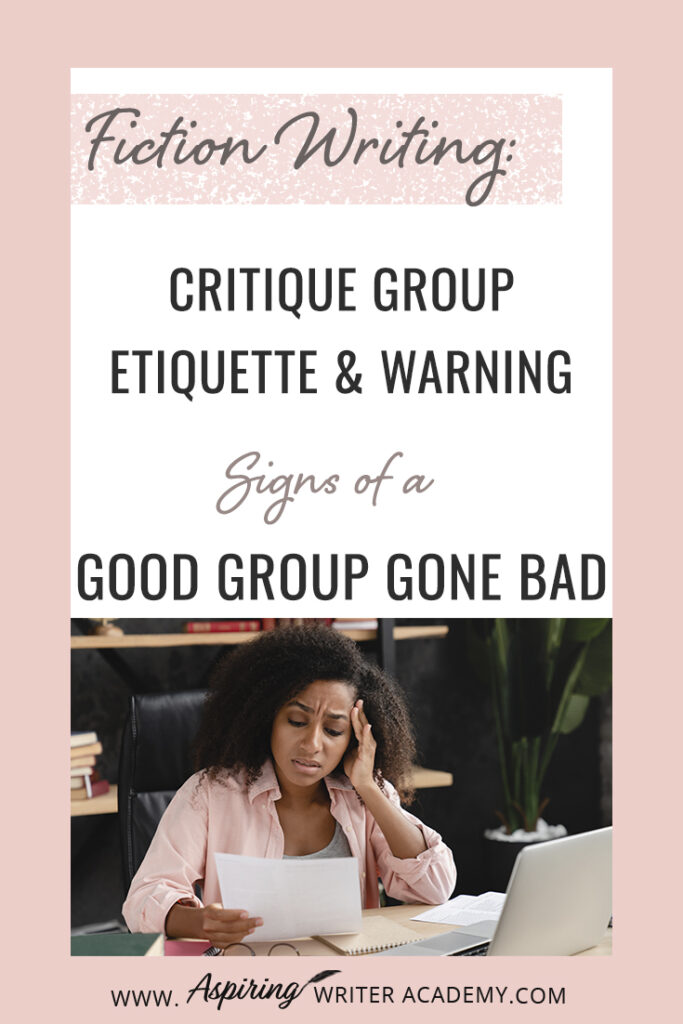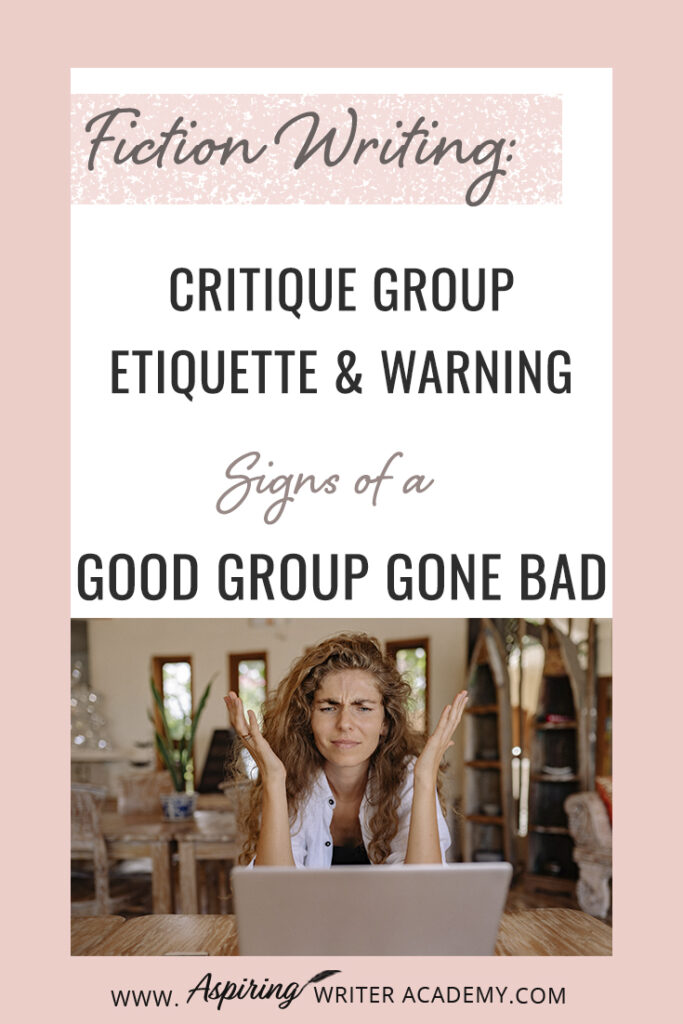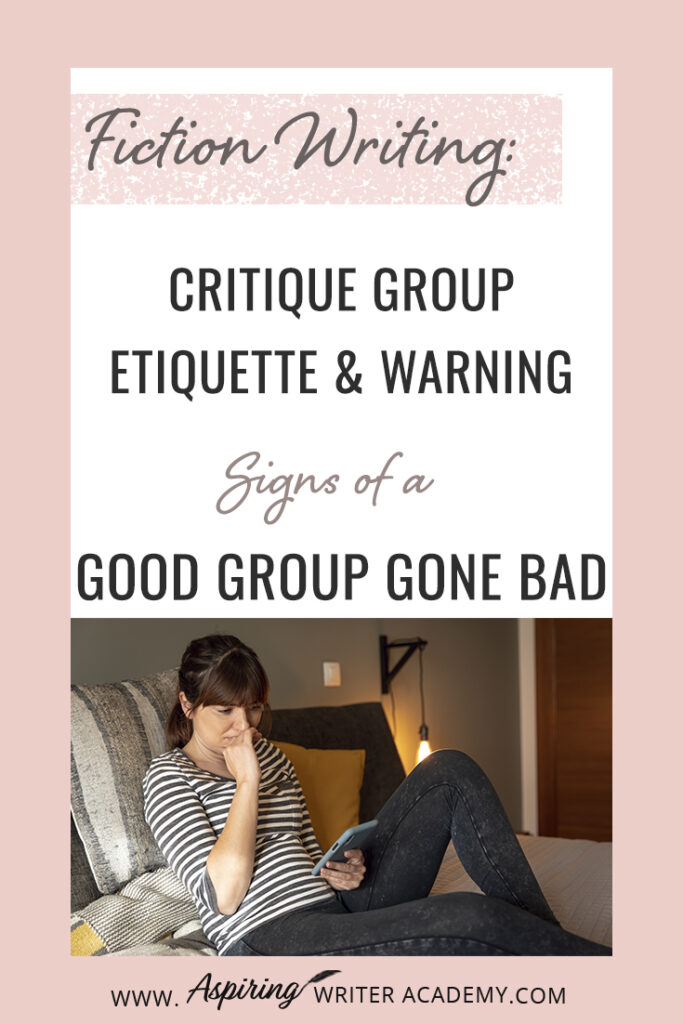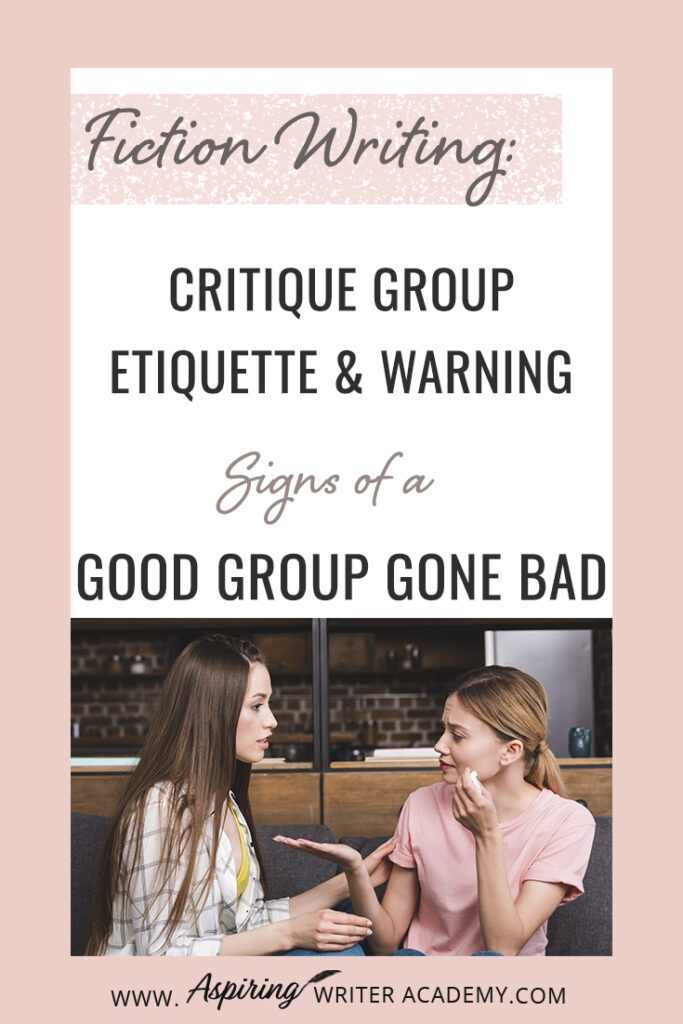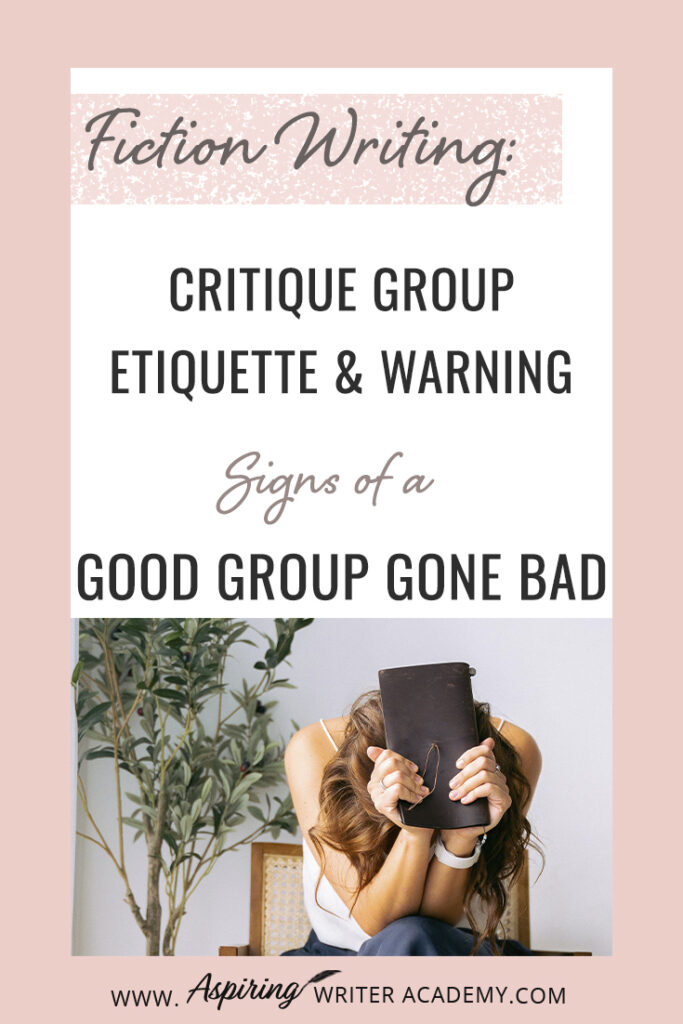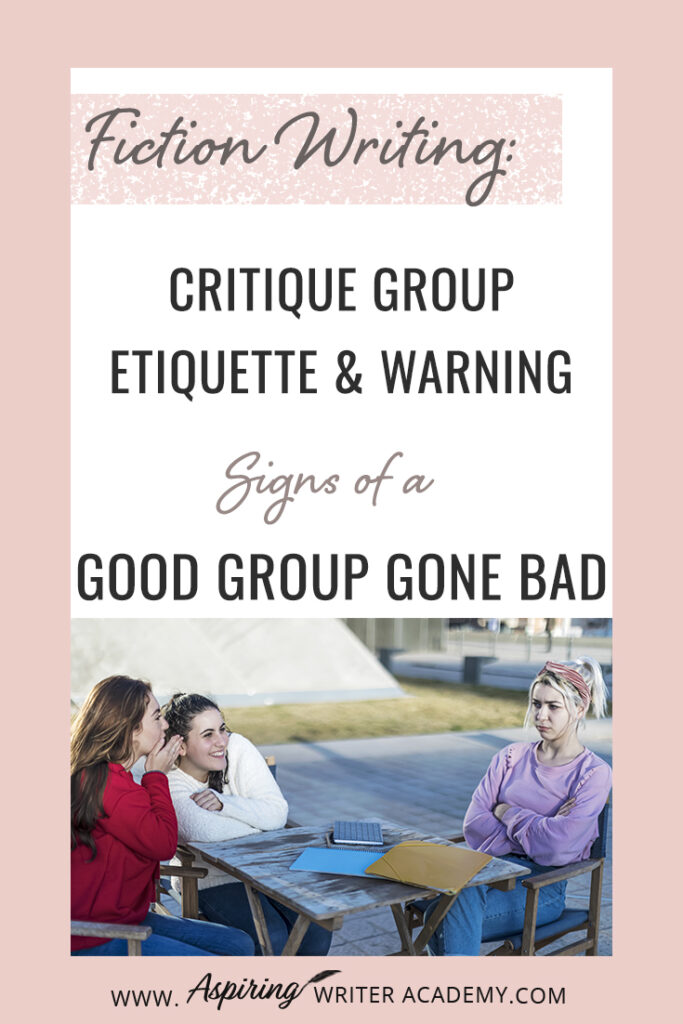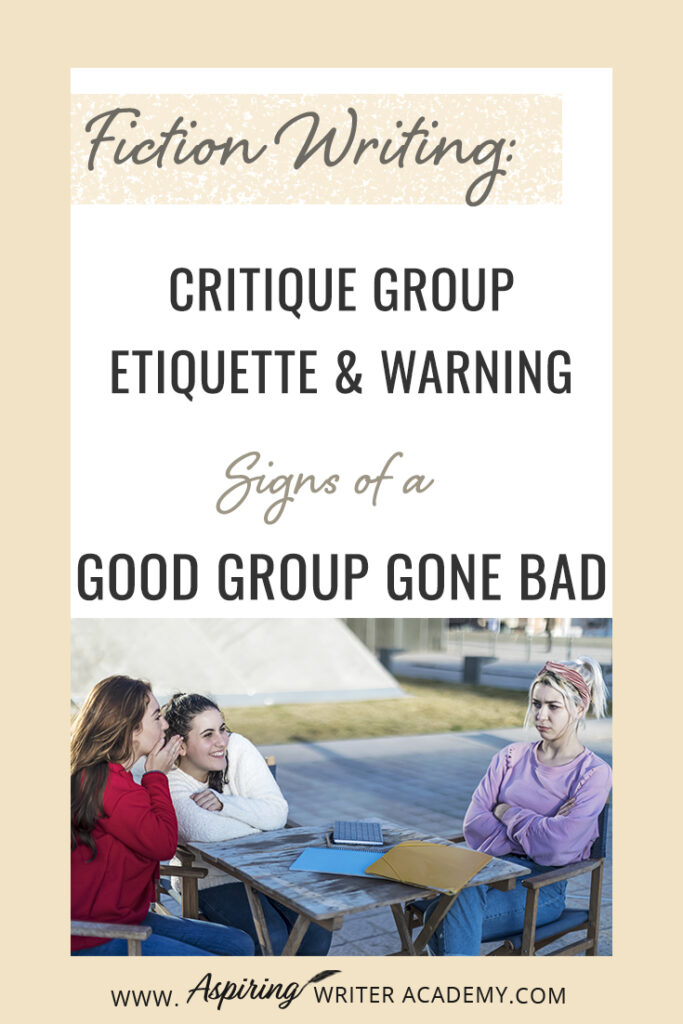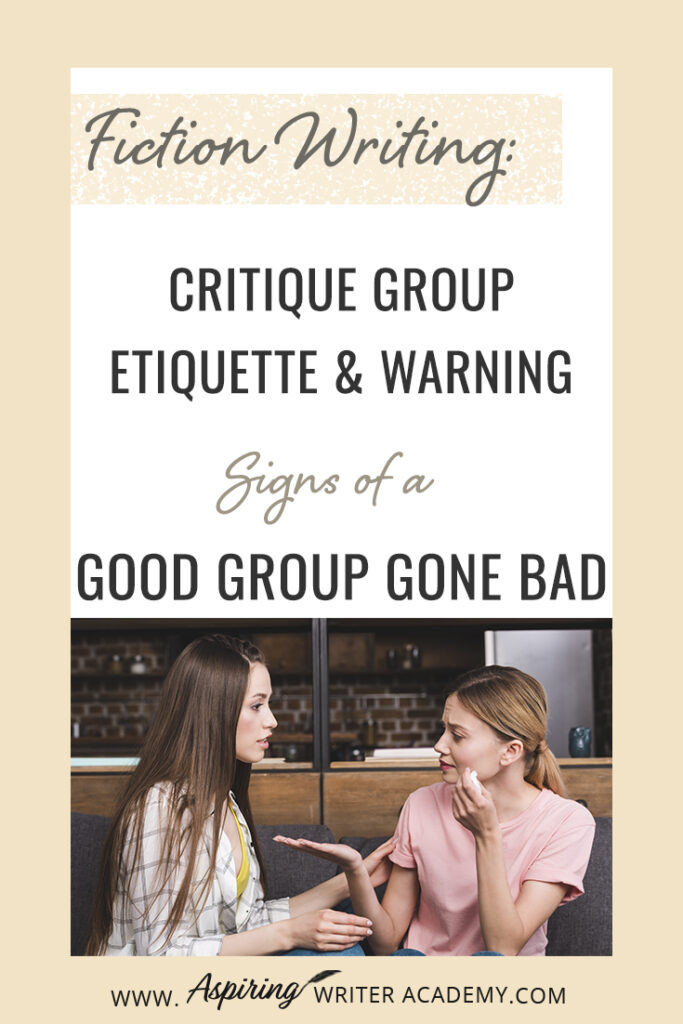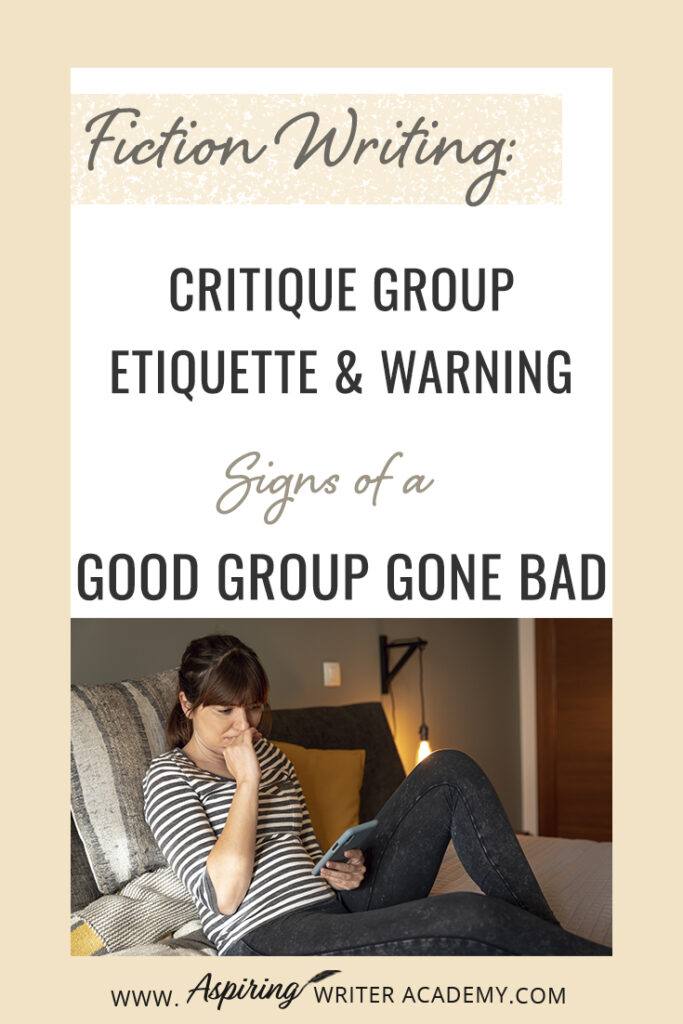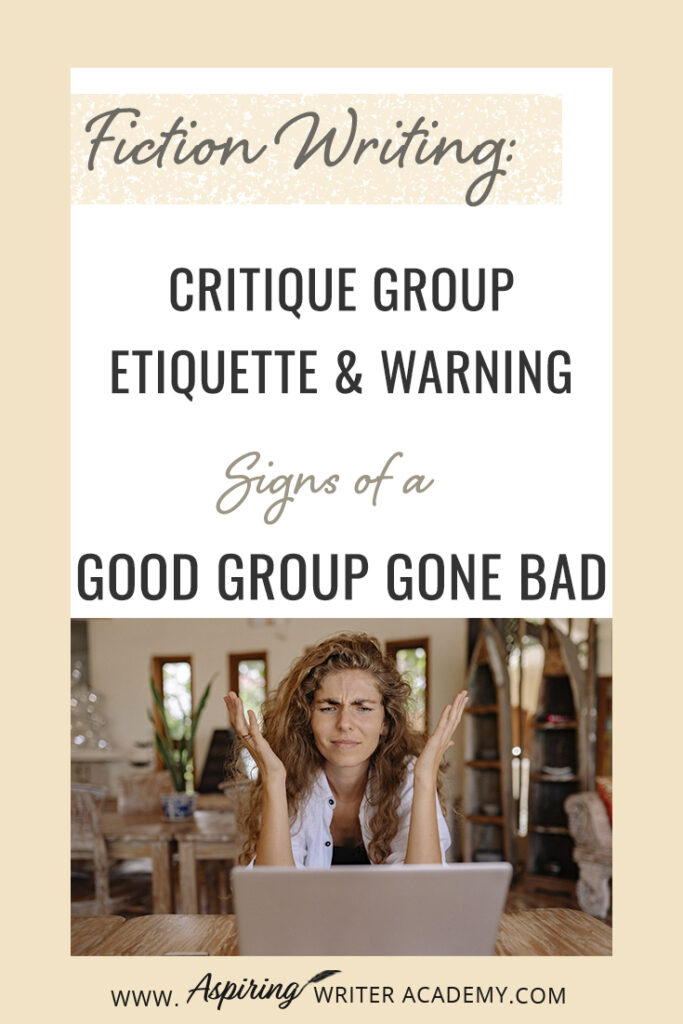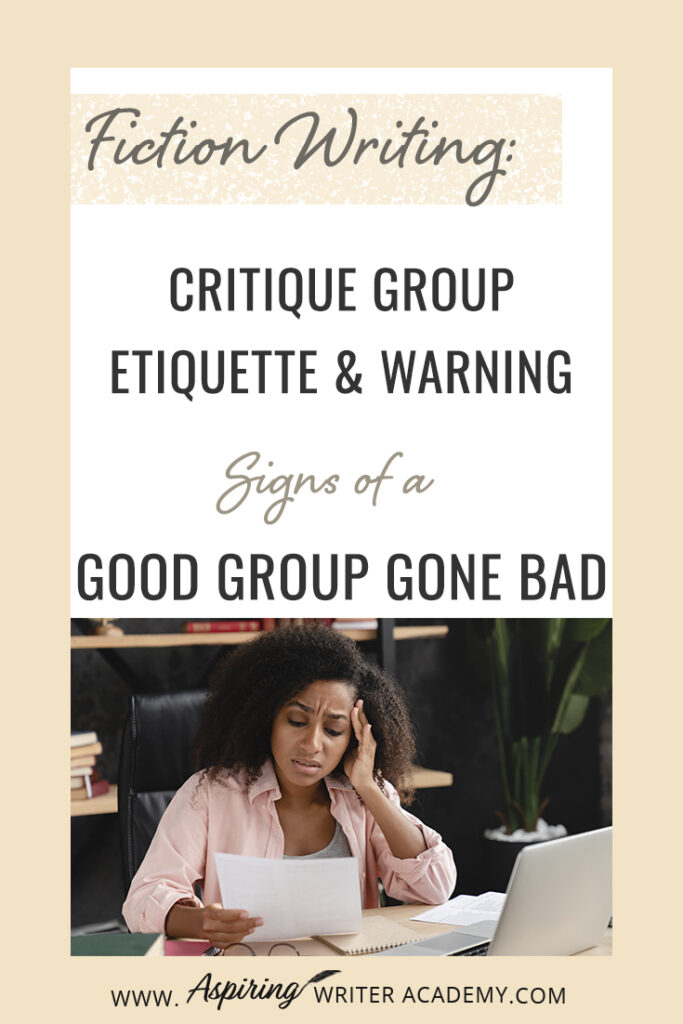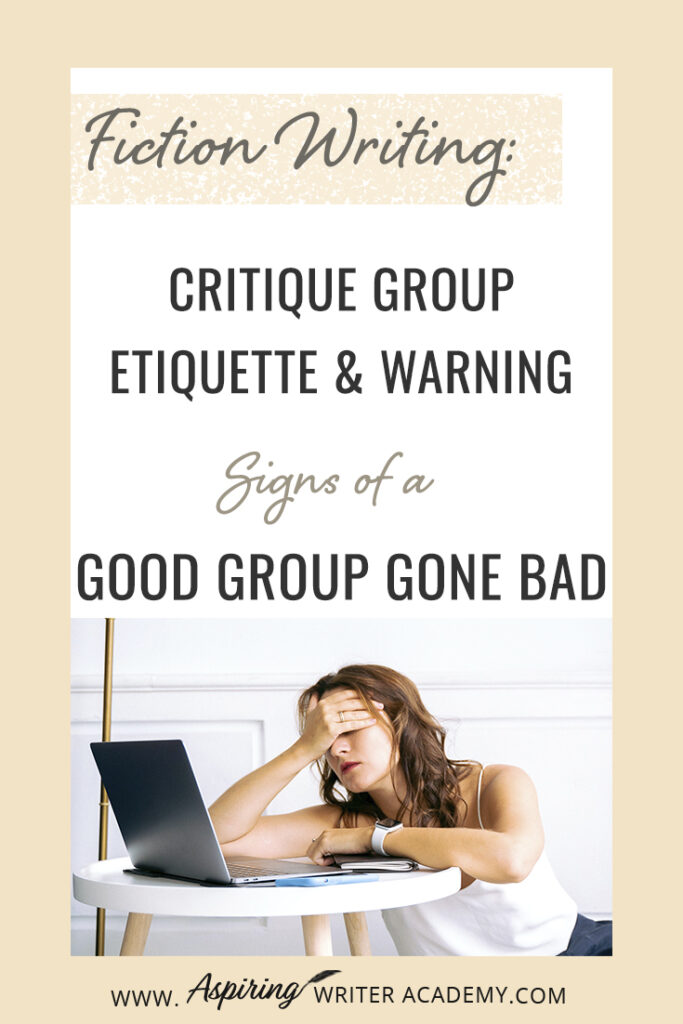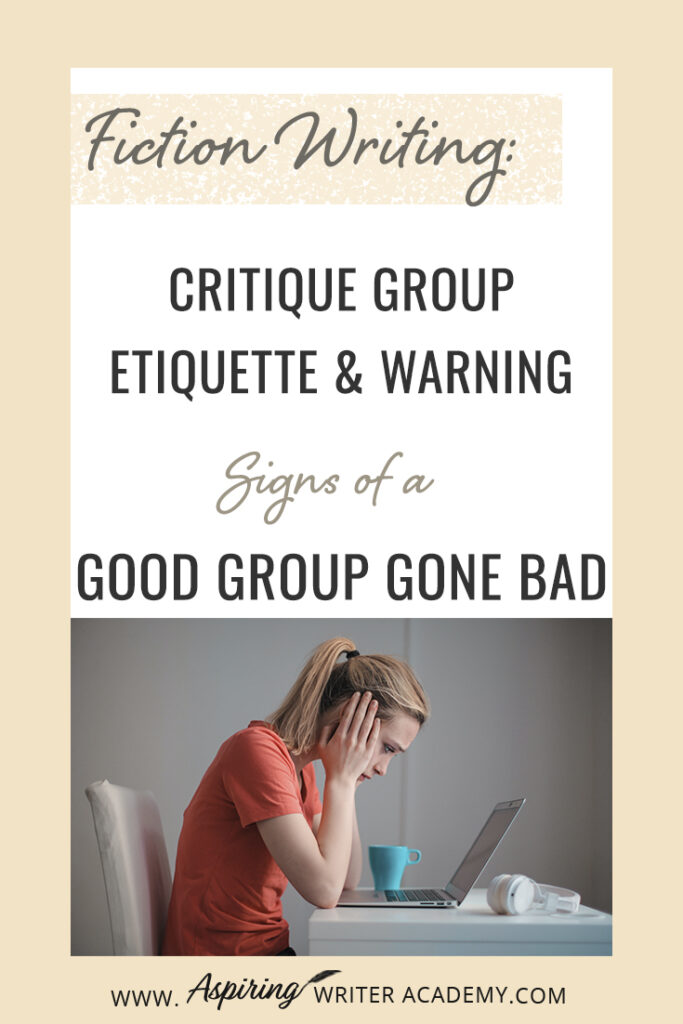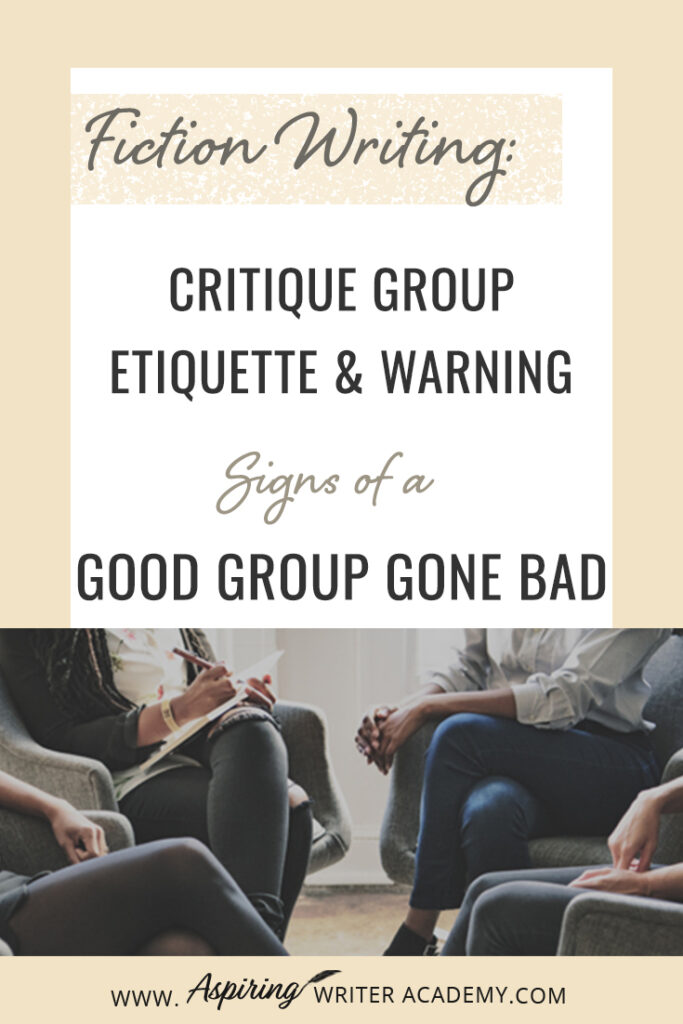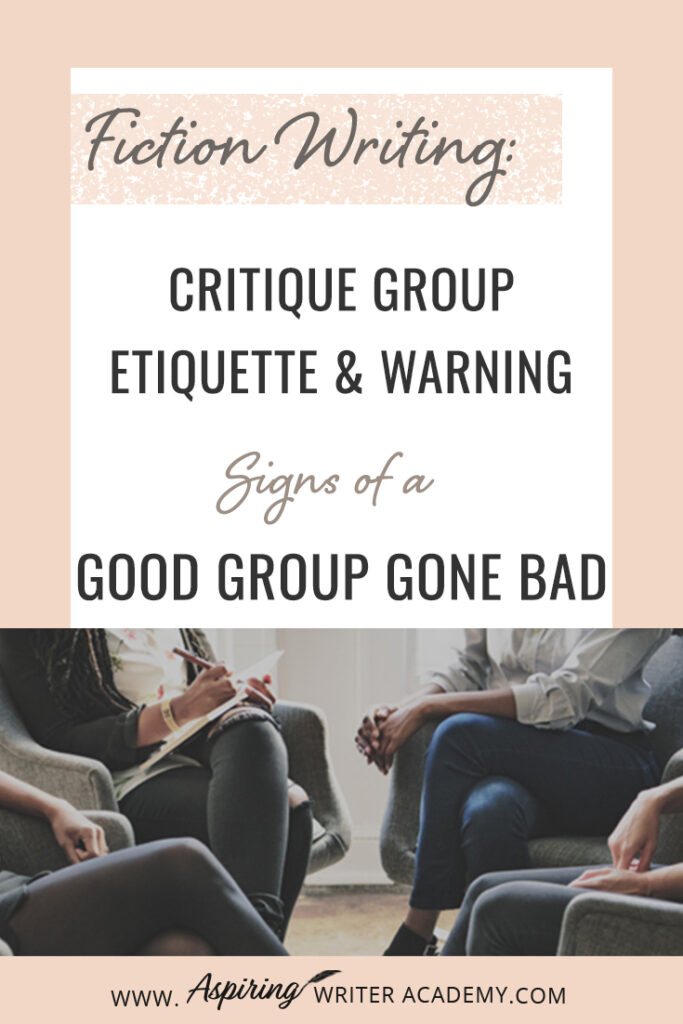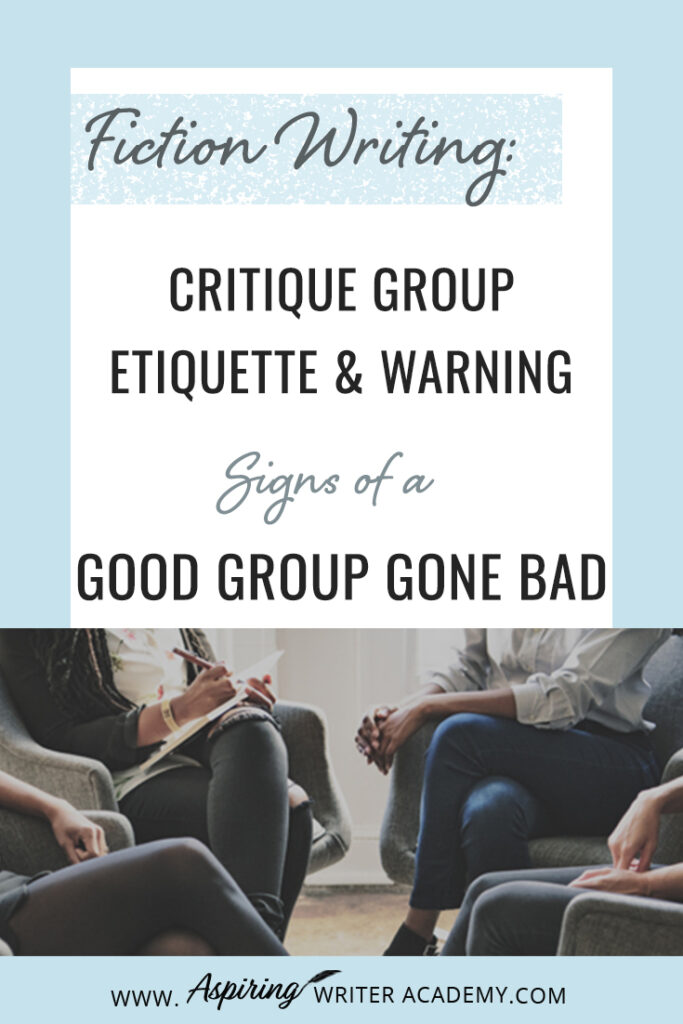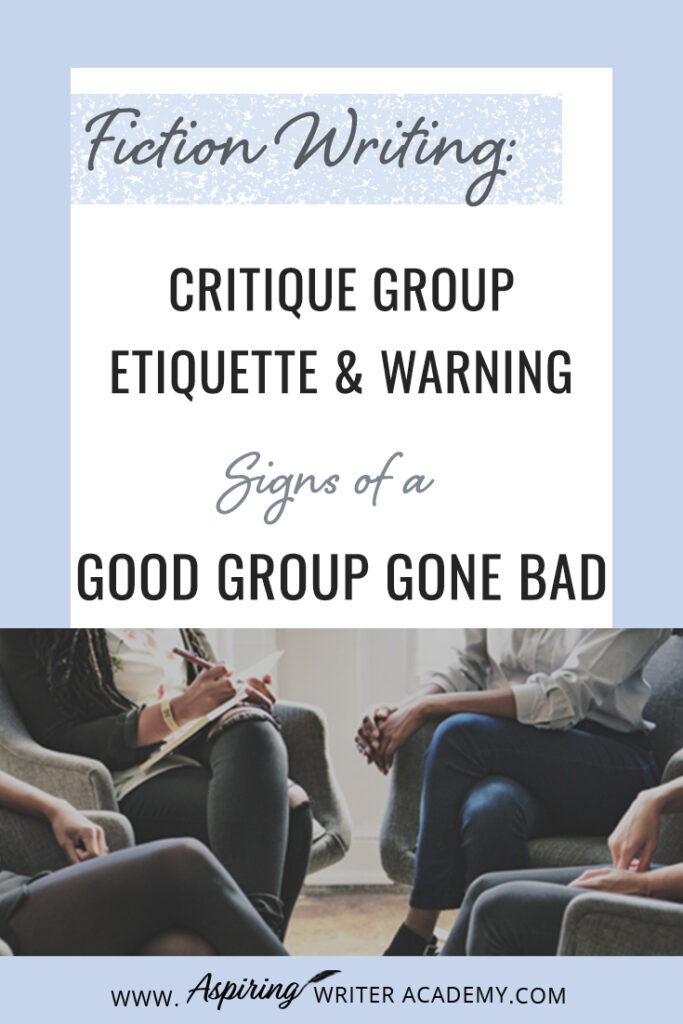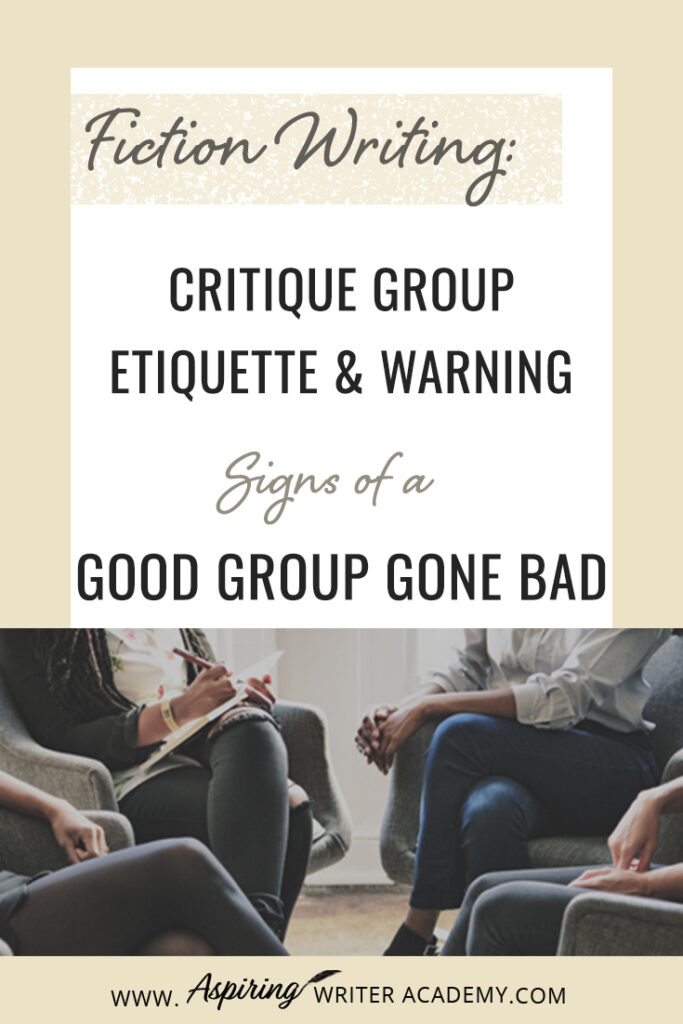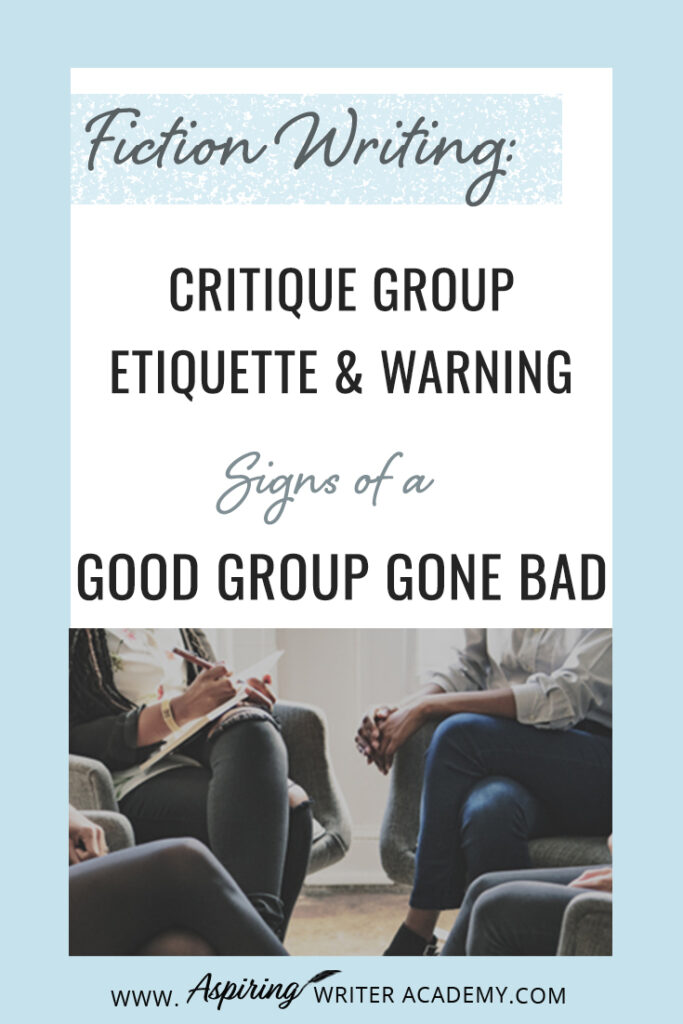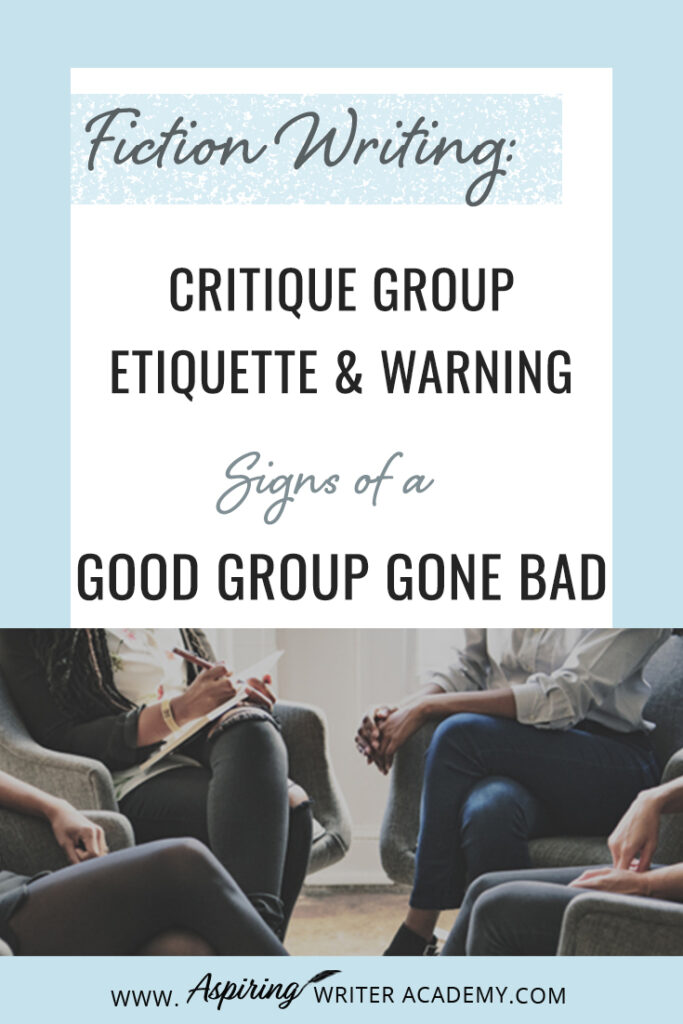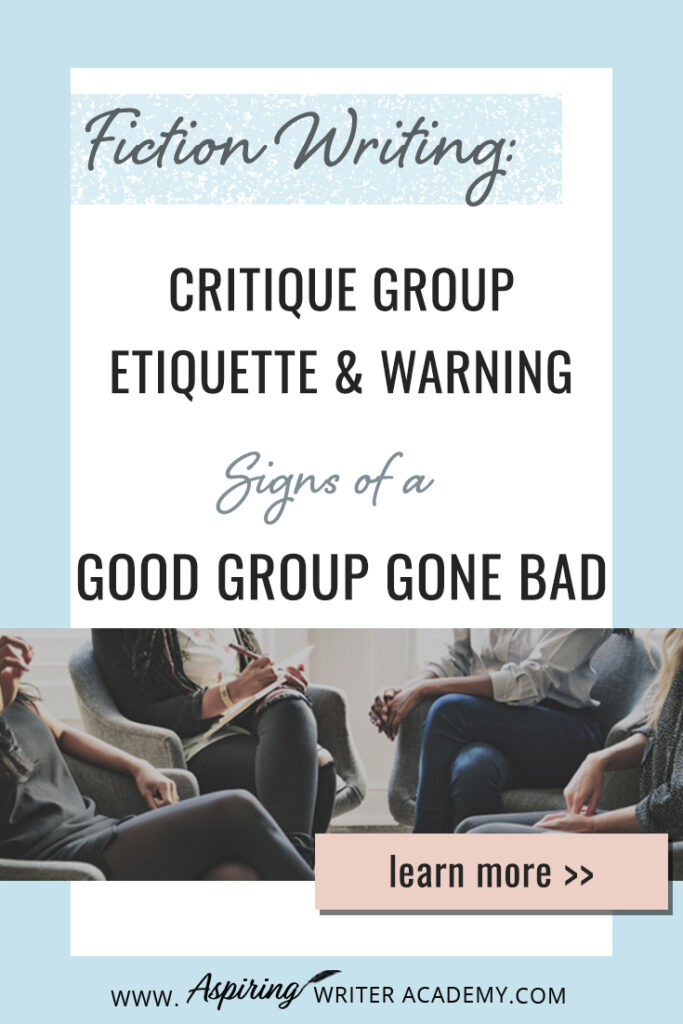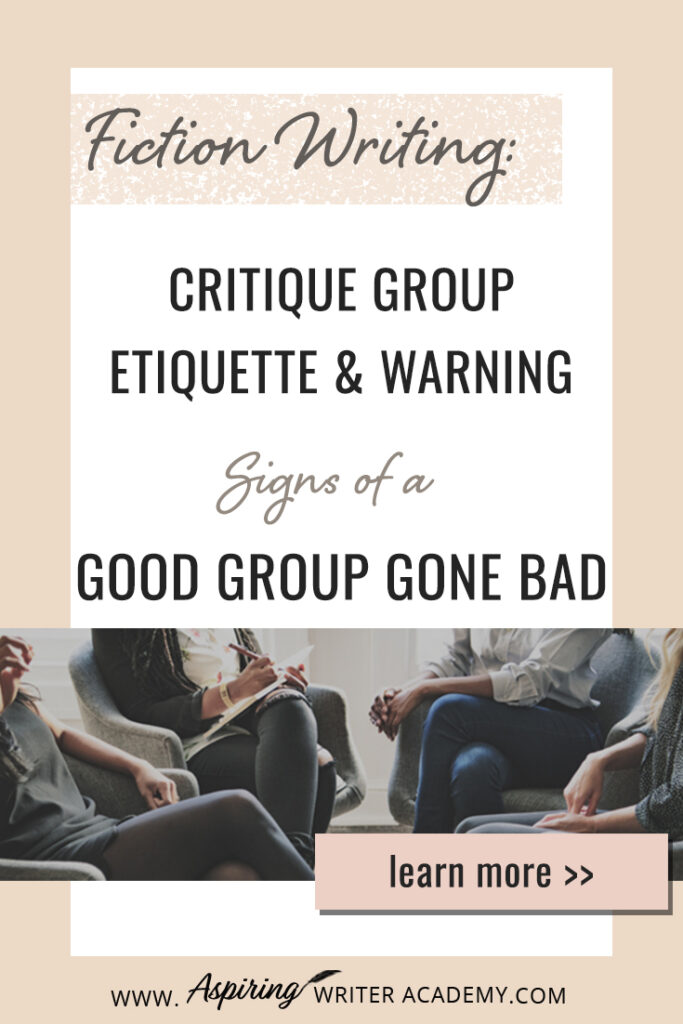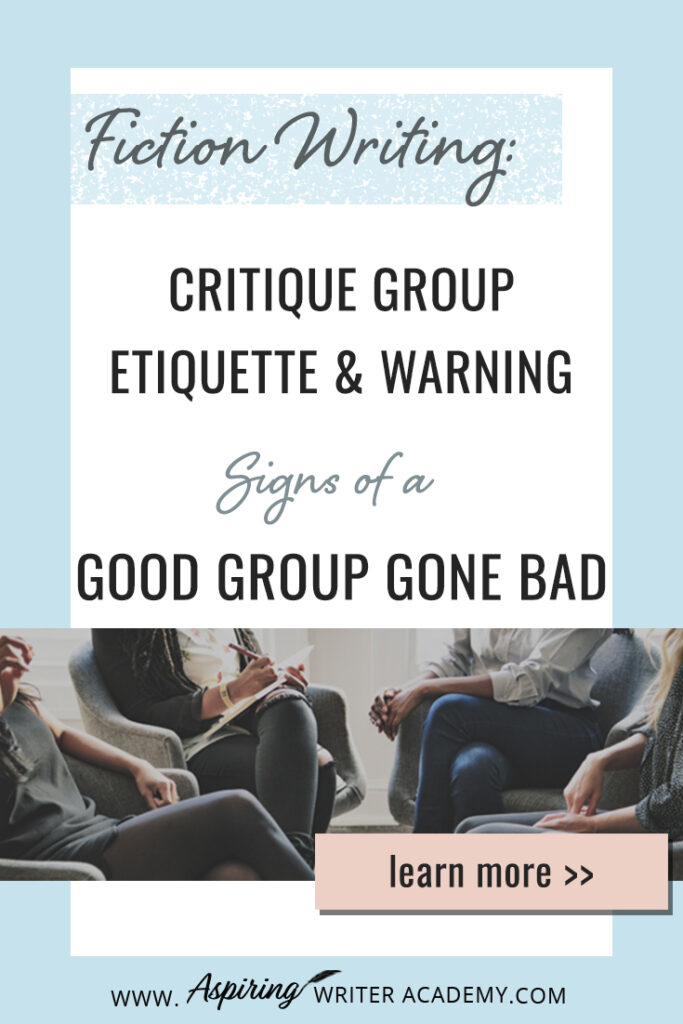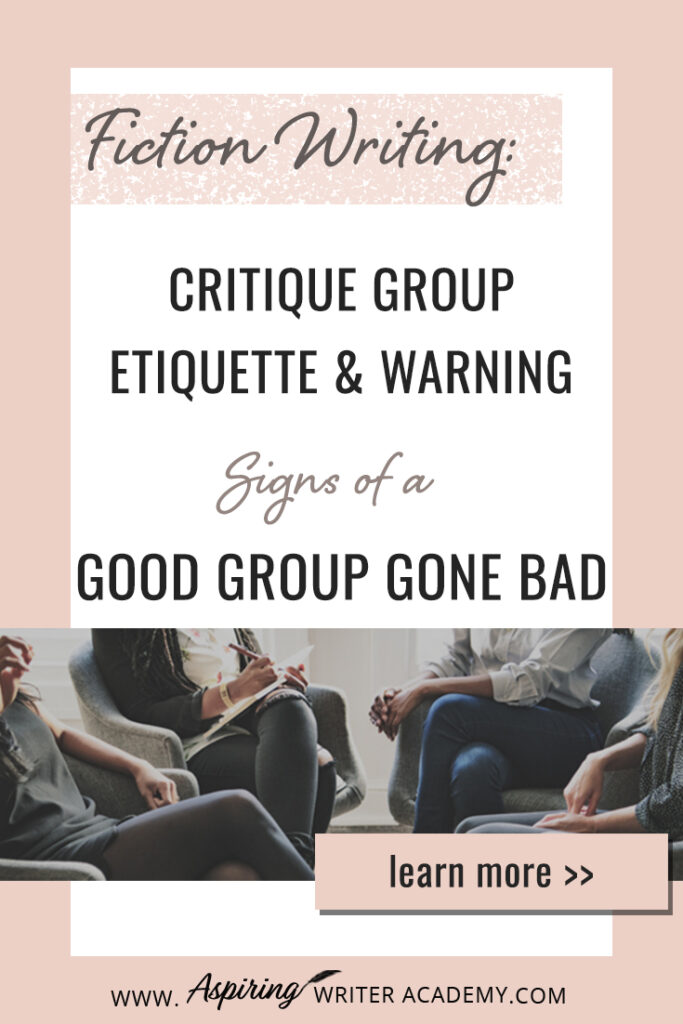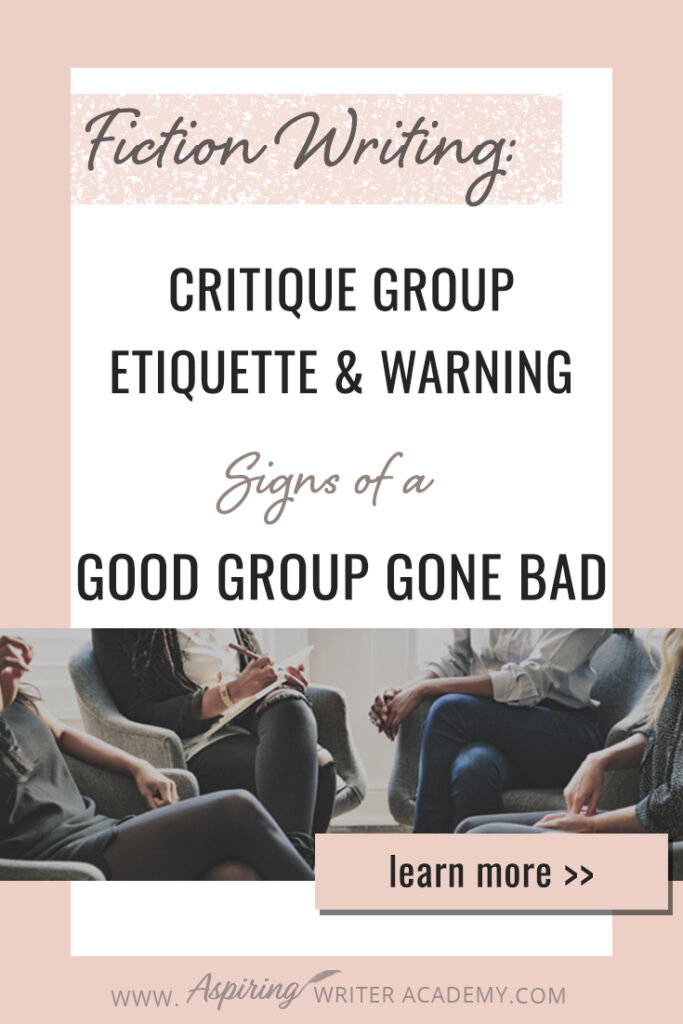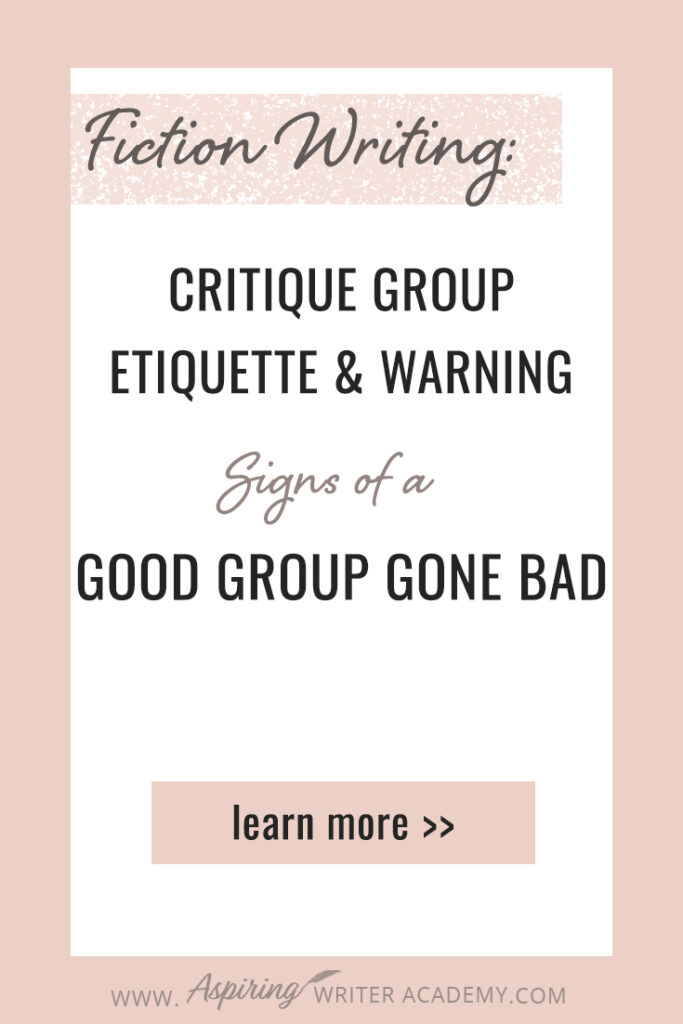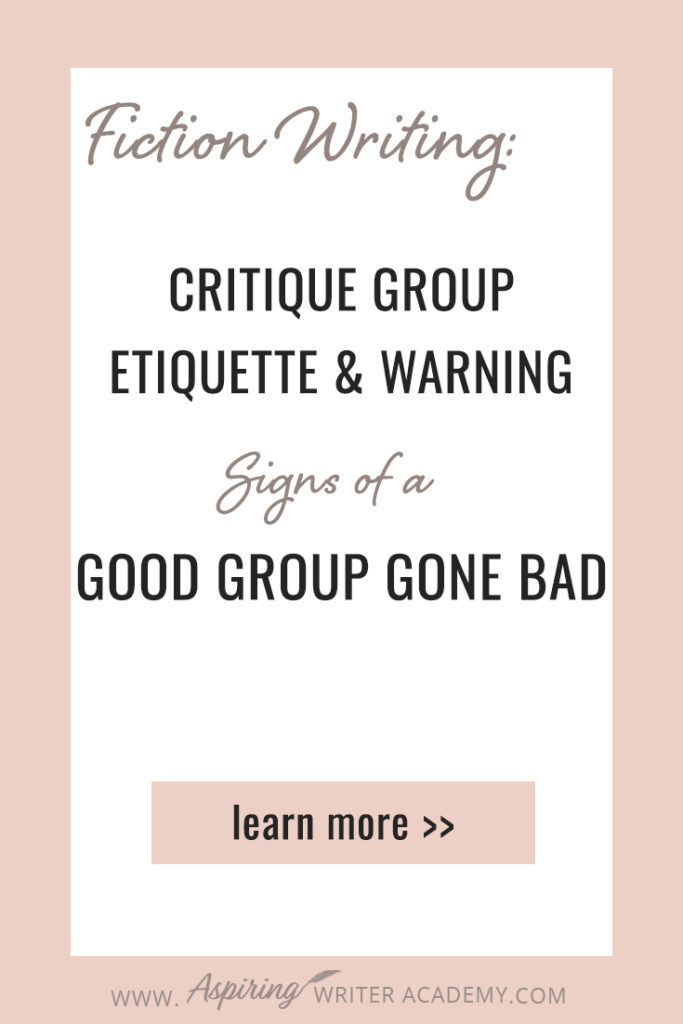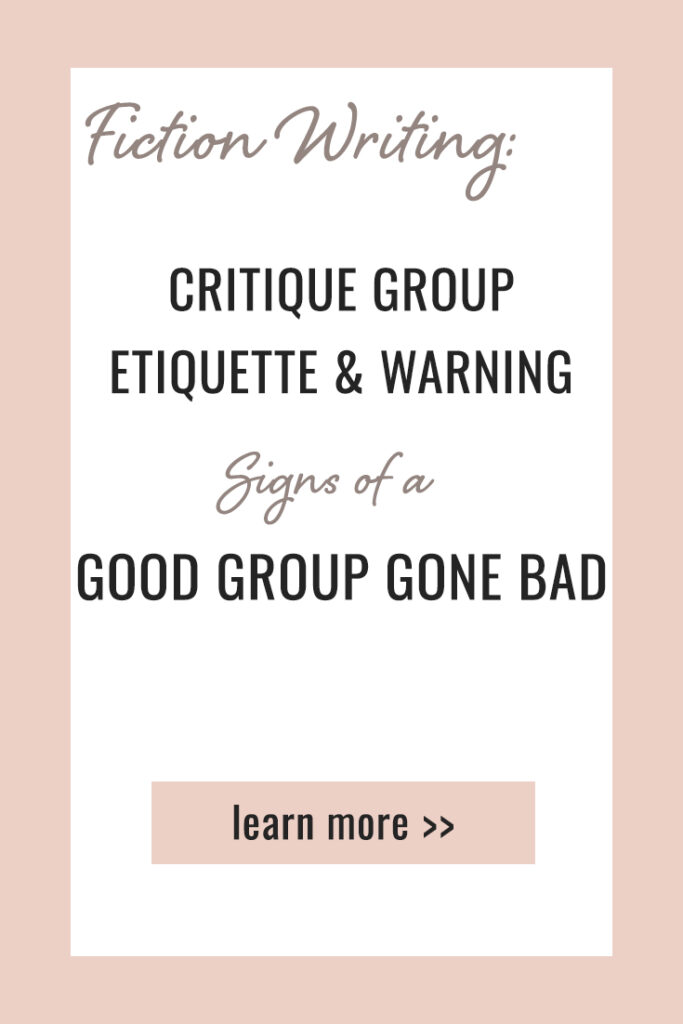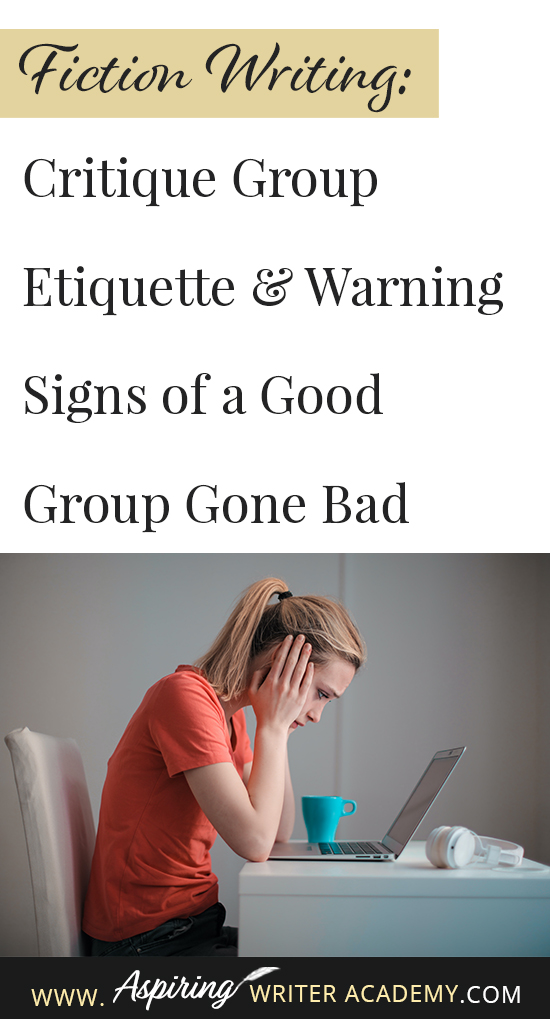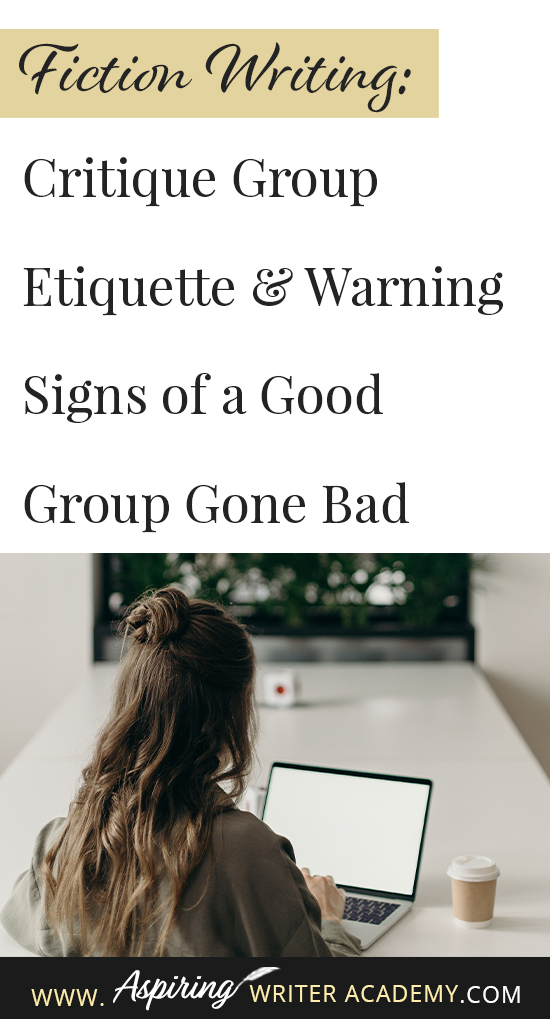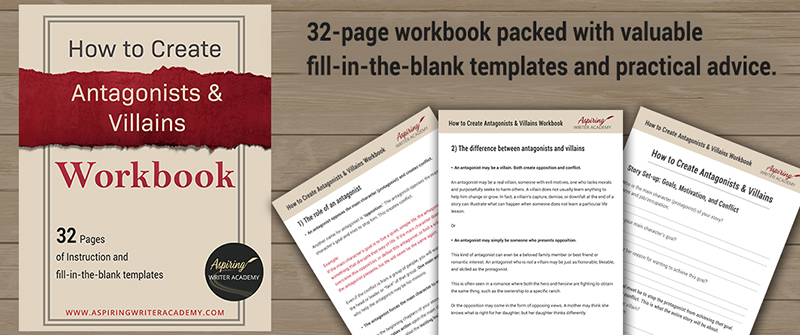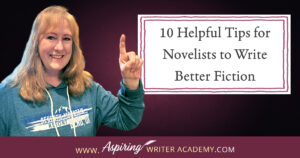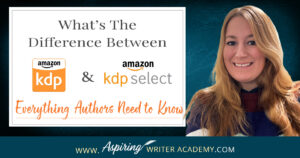Fiction Writing: Critique Group Etiquette & Warning Signs of a Good Group Gone Bad

Are you looking to join a critique group and wonder if it will be the right fit for you?
Or have you been in a critique group for a while, but doubt whether the feedback is helpful?
Worse, are you a writer who has suddenly found themselves stuck in a toxic critique group due to changes within the group dynamic?
In Fiction Writing: Critique Group Etiquette & Warning Signs of a Good Group Gone Bad, we discuss the good, the bad, and the ugly to help you get the best feedback on your work.
Join us as we discuss:
- Critique Group Etiquette
- How to Know if Your Partnership is Effective
- Toxic relationships & When it’s Time to Leave
1) Critique Group Etiquette
Basic Critique Group Etiquette:
Receiving negative feedback on your writing can be heart-wrenching. Always try to deliver your critique in a respectful way. Below is the ‘Oreo cookie’ technique:
1) First, say something positive, something nice that the author did right. One of my first instructors always used to start off with the line – “Overall, I liked… (this and that). Then, she would get into the hard-core elements in my writing that really needed improvement.
2) Next, gently point out the parts of the manuscript that should be discussed for possible improvement. If there is a plot point that isn’t realistic, or a character trait that doesn’t fit, try to offer a possible solution to help your partner fix the problem.
3) Finish, by once again saying something positive to encourage the author.
Constructive Advice. Always try to offer possible solutions to help one another, but each author must make their own decisions. It is their story, and they must pick and choose whose critique to follow. You shouldn’t demand that your partner follow your advice. And even if you don’t agree on what they choose, you need to respect the author’s choice. You can’t write the book for them.
Equality. Critique should be equal sharing. You can’t be the one doing all the work with your partner not contributing as much to help you. If you find the critiquing process is becoming one-sided, it may be time to dissolve the partnership and look for another critique partner who can give as well as take.
Respect. Many critique groups fall apart when one or more members become jealous of one another and start making snarky comments. If you do not have one another’s best interest at heart, the group can become toxic. If you feel you are being attacked, either for your subject matter, or religion, or viewpoints, get out. Do not allow another person to assume superiority over you and let them put you down.
Privacy. Also – whatever is said or discussed in the group should remain within the group. Those involved should not be prone to gossiping about the other members or the contents of their stories to outside sources.
2) How to Know if Your Partnership is Effective
Ideally, the goal of a critique group is to work together to read, edit, and offer advice on how each author can improve their writing and succeed in marketing and publishing. Each member of the group should be willing to put in the time to help one another, caring for one another’s work as much as their own.
Some critique group authors help one another cross-promote and go to conferences and book signings together.
Helping to bring out the very best in each other’s work is a win-win for everyone. Over time, each member should experience real growth in their skills as a writer.
But it doesn’t always work out that way.
If your group isn’t flourishing, it could be because:
- Some members of the group are not honoring their commitment. If someone promises to read and give feedback on your pages by a certain date, and then fail to deliver, it breaks trust within the group. Of course, sometimes emergencies come up which can be excused, but if one person continues to be haphazard in their attentiveness to others, it can cause a problem. Especially, when working writers are trying to meet publishing deadlines.
- Lack of enthusiasm or work ethic. While you may be putting in serious hours critiquing your partner’s work, it is frustrating when in return, your partner does not care to help you at that same level.
Now some authors have a higher skill level than others and can point out more points to consider, but what I am talking about here is the critique partner who is lazy and just reads over your story and says, “It’s fine.”
Or if they only point out a missing comma or a misspelled word instead of really looking into the story material.
Of if it seems this person hasn’t read your story at all and seems confused because they lack comprehension. Sometimes your story isn’t clear and certain sections may need to be pointed out as confusing, but when it is absolutely clear to everyone else and this one person seems fuzzy brained as if they didn’t even read it, (and maybe they didn’t for lack of time) this can cause a problem if it becomes a regular occurrence.
You do not need a critique partner who ‘skims.’ You need someone who is going to read and carefully consider the contents of your work. Someone who is really going to help you.
- Inability to offer the right advice. Your critique partner may also not be the right fit for you if they do not write in your same genre. One who writes mystery or thrillers may not be able to give good advice on your sweet romance. For one thing, the styles of writing are different. While a mystery, thriller, or suspense may have a sharp opening with a murder, a sweet romance may open with a cute-meet scene or a character-building segment.
Also consider how the other writers in your group write. A category romance writer (45,000-55,000 wordcount) uses a completely different style of writing than an author who writes 80-90,000 words. Shorter novels have a sharper focus, use more concise words, and do not have very much room for subplots or sub-characters.
Flash Fiction and short story writers may also not be able to help an epic novelist who writes tales over 100,000 words. There are all types of writing, and while input from different writers in different genres may give guidance, the truth is that the more you advance, the more you are going to need specific advice particular to your genre and style of writing. Otherwise, these other writers might start to steer you in the wrong direction.
If you receive advice from someone who doesn’t write in your genre and it is contrary to the advice you receive from your editor/publisher, you may need to find a critique partner more suited to help you with your particular type of stories.
- You’re giving more than you’re receiving. Sometimes an author may want to help another author out of the boundless love in their heart, but if your skill level is so far advanced that you are basically teaching the other members how to write, instead of receiving equal feedback, then you must really consider if this venture is worthy of your time. Writing and publishing is time consuming, and every moment is precious. Is this ‘mission project’ helping this other author worth it? Especially if you feel this person doesn’t really have the mental capacity, money, or resources to pursue a publishing career? Sometimes, it really is a mission of the heart which may have its own rewards, and sometimes it is time to let go.
- Personality Clashes. Sometimes being in the group is more work than it’s worth. If someone in your group is prone to throwing tantrums or indulging in pity parties or anxious to cut in on other people’s critique when it isn’t their turn, then you may need to consider if your group needs to ask that member to leave or if you yourself should exit.
Can you find a solution to enforce the expectations you have of one another in this group? Do the benefits of staying with the group outweigh the occasional outbursts and negativity?
Some people just rub others the wrong way. It is up to you to evaluate whether this group is a benefit to you and your writing or if it is becoming detrimental to your mental and physical health.
3) Toxic relationships & When it’s Time to Leave
Now let’s touch on the ugly side of critique groups. It can be difficult to find a good group whose members share the same values. And sometimes a group will start off good, but then situations arise that turn it into a ‘good group gone bad.’
Sometimes you may need to try several different groups before you find one that is beneficial and sometimes, one must wonder if it is better to just work alone and hire a trusted professional editor to help them develop their work.
Those who have been part of a toxic critique group know what is like to be ‘burned’ and are not likely to put themselves in a situation that will allow it to happen again.
How to know if your critique group has become toxic:
- Toxic people cause toxic situations to arise that are detrimental to its members.
- Toxic people:
- Spread negativity
- Criticize and speak badly of others, engage in snarky personal ‘digs’
- Lie, cheat, gossip, lack basic social morals or compassion for others
- Waste your time, keep disappointing you, have addiction issues
- Lack self-control / lose their temper
- Talk more than they listen / dominate conversations
- Are self-centered, always have drama in their lives, constantly play the victim, and indulge in ‘poor me’ syndrome to seek attention
- Try to control or manipulate you / always have to be right
- Use their jealousy to hurt others
Criticism: Your critique group partners should be there to celebrate your book release or new writing contract or contest win. They should be your biggest supporters, cheerleaders, and also be there to pull you back up when you are feeling down. (Like after getting a rejection letter.)
Although you should not take every comment about your writing personal and you should be mature enough to handle critique, you should not have to deal with those who make insensitive remarks, or who make you feel bad about your yourself or your writing.
Stealing: There have also been instances where one author may ‘steal’ another author’s ideas and write them into their own story. They may not even know that they are doing it. Having read your story, this person may think that they have come up with it in their own head, but the truth is that your words may be at the forefront of their mind because they just critiqued your work. You may see very similar lines or phrases, perhaps even scenes, that resemble your own. A gentle reminder that you had a similar scene may solve the problem. However, if you ever feel that someone in your group is stealing your words and scenes on purpose, it is time to leave the group.
Jealousy: Sometimes a member of a critique group may become jealous of another member’s success, thinking they don’t deserve it or believing that once that person ‘published’ they got a big ego or big head (when that might not be true at all.) Jealousy can eat a person alive, and this member might start making snarky comments or might refuse to celebrate with you or help with the promotion of your book. A jealous person might not even offer a simple ‘congratulations,’ which can be very hurtful to the author who has struggled for this achievement and believed they were friends. Many friendships have been destroyed by ambition and jealousy.
Closing Thoughts:
Finding the right critique partner or joining a great critique group can be the best decision that you ever make in your writing career.
Critique groups can be a valuable source of inspiration and offer guidance that can launch your writing to the next level.
They can be incredibly fun, insightful, and help you build life-long friendships if you are all serious about your writing and have one another’s best interests at heart.
Tips for the Future
- Perhaps consider joining a critique group on a trial basis for a few months before making a long-term commitment.
- If you find that your critique group is no longer of value, reevaluate your goals and writing needs before looking for another group so you know what to look for.
- Don’t stay in a toxic relationship or you will suffer the consequences. If you find yourself in a Good Group Gone Bad, find a way to leave as gracefully as you can so your exit doesn’t instigate retaliation or backlash. Leaving a long-term relationship can be difficult, but a few simple words inferring that your goals have changed and that you need to go in a different direction for the sake of your writing is best.
I hope you have enjoyed reading Fiction Writing: Critique Group Etiquette & Warning Signs of a Good Group Gone Bad, and have discovered some valuable tips to either help your group succeed or know when it might be time to part ways.
If you would like help outlining your story, you may want to download our Free Brainstorming Your Story Idea Worksheet.
Do you find it difficult to create compelling antagonists and villains for your stories? Do your villains feel cartoonish and unbelievable? Do they lack motivation or a specific game plan? Discover the secrets to crafting villains that will stick with your readers long after they finish your story, with our How to Create Antagonists & Villains Workbook.
This 32-page instructional workbook is packed with valuable fill-in-the-blank templates and practical advice to help you create memorable and effective antagonists and villains. Whether you're a seasoned writer or just starting out, this workbook will take your writing to the next level.
If you have any questions or would like to leave a comment below, we would love to hear from you!
Our Goal for Aspiring Writer Academy is to help people learn how to write quality fiction, teach them to publish and promote their work, and to give them the necessary tools to pursue a writing career.
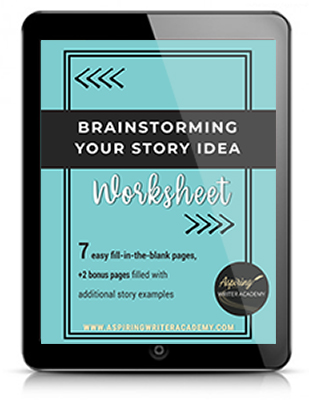
ENTER YOUR EMAIL BELOW
TO GET YOUR FREE
"Brainstorming Your Story Idea Worksheet"
7 easy fill-in-the-blank pages,
+ 2 bonus pages filled with additional story examples.
A valuable tool to develop story plots again and again.
Other Blog Posts You May Like
What Authors Need to Know About ISBN Numbers Before Self-Publishing
Fiction Writing: How to Find a Critique Partner/Group
How to Research Information for a Historical Novel
7 Steps to Begin Writing a New Fictional Story
Learn to Plot Fiction Writing Series: Story Analysis of the movie “Signs”
Fiction Writing: How to Get a Literary Agent
How Writing Prompts Can Improve Your Fictional Story
Creative Writing: 5 Ways to Strengthen a Weak Fictional Character
Fiction Writing: Create a Storyboard to Map Out Your Scenes
Fiction Writing: How Specific Details Can Bring Your Setting to Life
How to Spot Publishing Scams & How To Avoid Them
5 Common Mistakes New Writers Make
Fiction Writing: Story Analysis of the movie “Passengers”
Fiction Writing: How to Write Compelling Dialogue
Fiction Writing: 5 Key Differences Between a Novel and a Novella
Pros & Cons of Traditional vs. Self-Publishing Fiction
3 Ways to Avoid Writing ‘Episodic’ Scenes in Fiction
Fiction Writing: Office Supplies to Help You Prepare to Write Your Next Novel
Scene & Sequel: The Secret to Plotting an Epic Novel
Scene & Sequel: The Secret to Plotting an Epic Novel (Part 2)

is a multi-published author, speaker, and writing coach. She writes sweet contemporary, inspirational, and historical romance and loves teaching aspiring writers how to write quality fiction. Read her inspiring story of how she published her first book and launched a successful writing career.

